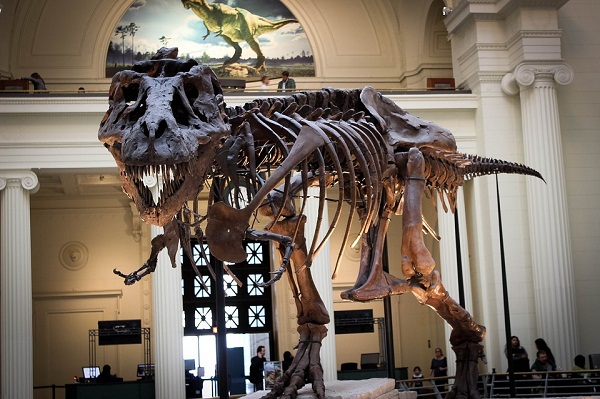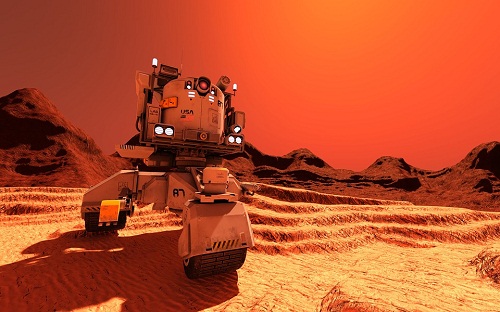On Monday, a near complete fossil of a dinosaur was sold for huge $2.36 million to a British private art collector at an auction in Paris. The auction was held by Aguttes Auction House at the Eiffel Tower in Paris. However, many scientists are not happy about this auction. They believe such findings belong to a museum and should not be sold to some private collector.
The bones of the 150-million-year old Jurassic-era carnivorous biped were discovered in 2013 at the Morrison Formation (centered in Wyoming and Colorado) in the western United States. The fossil was 70 percent intact. It measures 2.6 meters tall and 8.7 meters from its head to the tip of its tail. Initially, it was thought to be an allosaurus, but then many scientists said it likely belongs to a new kind of dinosaur species.
Eric Mickeler, a paleontologist and advisor to the Aguttes auction house that organized the action, told Agence France-Presse that the dinosaur is “the only one of its species”. According to him, this animal “had accidents along the way, it had fractures that healed… but it didn’t die from them.”
Eric Geneste, a dinosaur expert, said the dino have not classified as an allosaurus as it has longer shoulder blades, a more prominent pelvis, and more teeth. Its skull bones are also different from other theropod.
“In fact, there are as many differences between it and an allosaurus as between a human and a gorilla,” Geneste added.
https://twitter.com/john_pickrell/status/1003809442972905473
Scientists think this fossil needs more detailed study, but after its sale, there is a dim chance that they will an opportunity to have a close look at it in future.
“An auction is a device to get the highest possible price out of something,” P. David Polly, the president of the Society of Vertebrate Paleontology and a professor of sedimentary geology at Indiana University, told Live Science.
“And, generally speaking, even big museums don’t have budgets for purchasing specimens.”
Last month, the Society of Vertebrate Paleontology requested the auction house to cancel the sale of the fossil.
“Scientifically important vertebrate fossils are part of our collective natural heritage and deserve to be held in public trust,” the society, which represents more than 2,000 students and professionals, said in an open letter.
“Fossil specimens that are sold into private hands are lost to science. Even if made accessible to scientists, information contained within privately owned specimens cannot be included in the scientific literature because the availability of the fossil material to other scientists cannot be guaranteed, and therefore verification of scientific claims (the essence of scientific progress) cannot be performed.”
According to auctioneers, the person who bought the dino fossil, has pledged to make it available to scientists.
“Everyone will be able to see it, it will soon be lent to a museum, it will be studied by scientists, everything is perfect,” auctioneer Claude Aguttes told Reuters.
Scientists are also concerned about another issue: Who will name it, if it is a new species.
Page 51 of the auction brochure states: “The buyer will be acquiring the skeleton of a dinosaur which could be named after them or after one of their children, with the agreement of the scientist who formally describes the species,” the auction brochure states.
“One’s name would thus remain forever linked to a significant cultural and scientific event.”
However, the Society of Vertebrate Paleontology says naming of new species “is governed by the International Code of Nomenclature, which award priority to the first validly published name, not to the owner of the specimen that formed the basis of that name.”
Another major concern for scientists is that if such fossils continue to fetch high prices, more people will start thinking about it as a lucrative business venture, thereby trying to rob scientists and museums of significant specimens.
Landowners will stop cooperating with scientists, but rather work with whoever pays them more money for such fossils.

